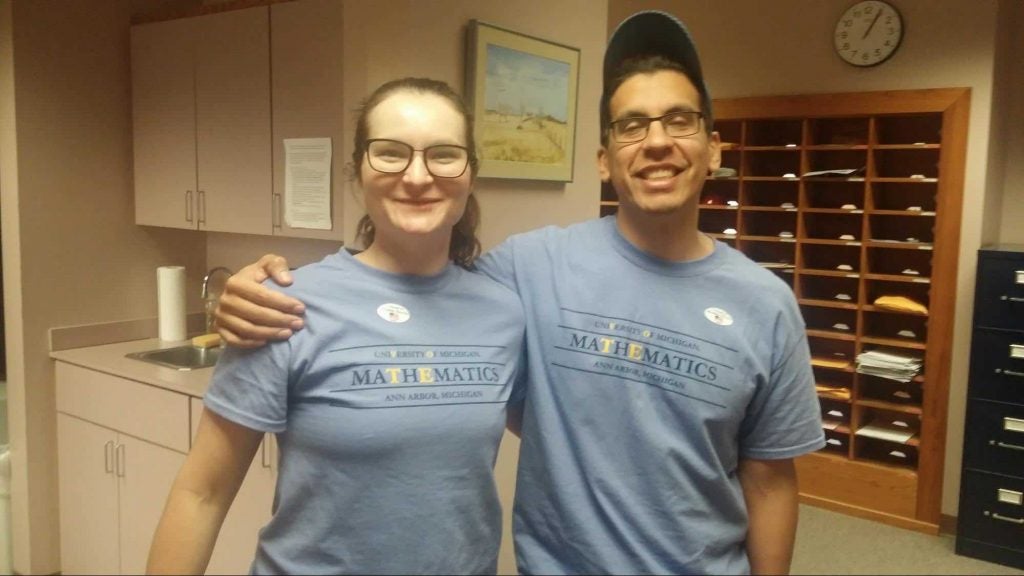Associate Professor
University of Kansas
Daniel Hernández defended his PhD thesis, F-Purity for Hypersurfaces, under the direction of Karen Smith in 2011. He is greatly appreciated by his colleagues at the University of Kansas for his extensive research in commutative algebra, which has been supported by the National Science Foundation and several other competitive grants, including a SQuaRE award from the American Institute of Mathematics.
A gifted teacher and mentor, Daniel is making a big difference in the lives of undergrads at Kansas. His success has been recognized with the 2018 Grant Goodman Undergraduate Mentor Award from his University. Daniel is deeply committed to helping under-represented students succeed in math, college and life. Already here at Michigan he was heavily involved in teaching and mentoring, for example, through MMSS and through M-STEM. Summer 2017, he returned to his home town to spend time with family and run a Cryptography and Number Theory Bootcamp REU at the University of Texas, El Paso. Daniel enjoys collaborating widely on research and involving his students in his research, which he did even here at Michigan by assisting with REU projects.
Success has not always come easy for Daniel: he was just regular kid playing every kind of sport in El Paso Texas before he experienced the shock of moving to the climate and culture of the northeast to accept a full college scholarship from Boston University. By the time he defended his thesis, Daniel had won a Ford Foundation post-doctoral fellowship and accepted a post-doctoral position at the University of Minnesota, where he continued to do strong research. Within a few years, he added a post-doctoral position at the Special Year in Commutative Algebra and an NSF post-doctoral fellowship, which he spent mostly at the University of Utah, to his CV.
Daniel met his (future) wife, Emily Witt, right here in Ann Arbor, in the algebra alpha course their first semester. Michigan born and bred, Emily had just arrived to our PhD program as well, after completing her undergraduate degree in math at the University of Chicago. More or less accidentally, Daniel and Emily wound up working in related areas of mathematics, as she chose Mel Hochster as her advisor. Despite worrying about their “two-body problem,” Emily is now also a successful research Assistant Professor at Kansas. Hard work, a willingness to compromise and negotiate, and of course a good dosage of luck enabled them to spend many semesters in the same location as post-docs as well. Stamina, friends, basketball and a positive attitude got Daniel through the remaining semesters. It is both a blessing and curse that wherever he goes, Daniel always have a research collaborator by his side.


